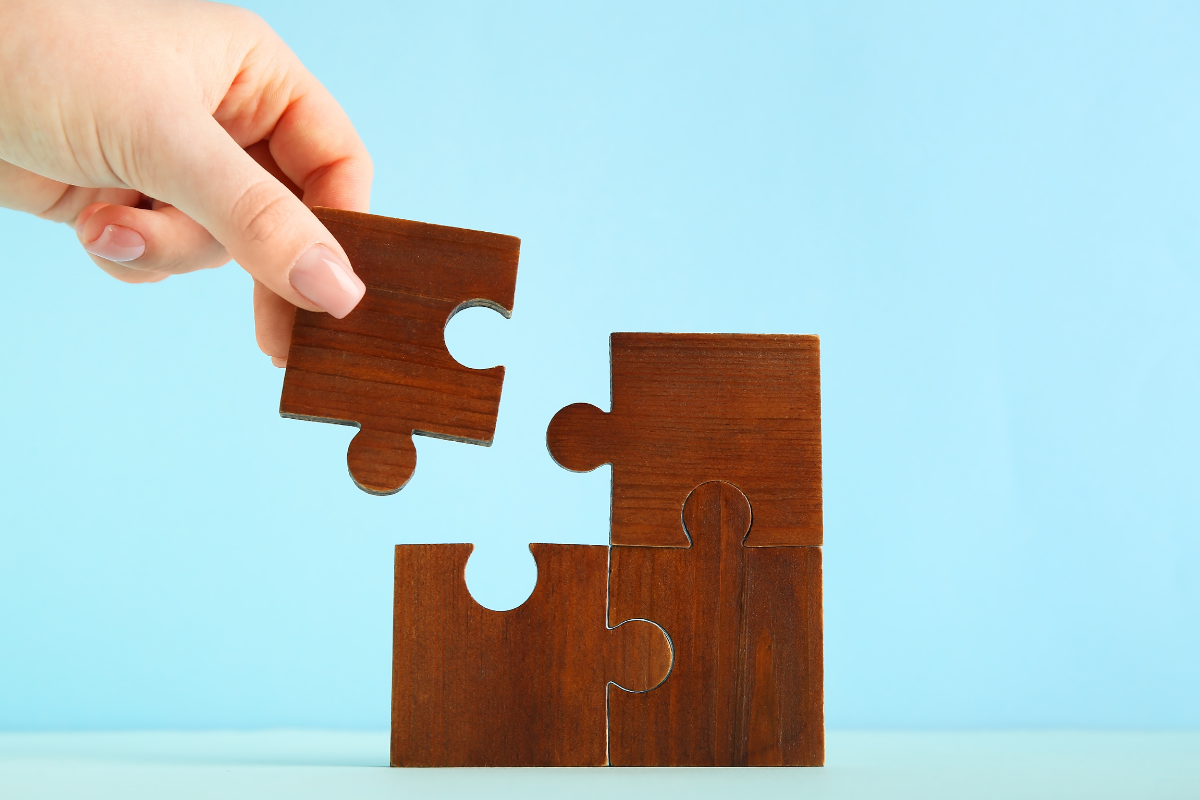The Cognitive Benefits of Puzzle Solving

Solving puzzles is more than just a fun pastime – it’s a workout for the brain. Word puzzles (like crosswords), number puzzles (like Sudoku), logic puzzles, and jigsaw puzzles each challenge the mind in different ways. Research shows that engaging in puzzles regularly can improve memory, focus, reasoning, and overall brain health at any age. Puzzles demand attention to detail, pattern recognition, and creative thinking, all of which stimulate neural connections and cognitive abilities.
Memory and Attention
Puzzles engage memory systems by requiring you to recall information and stay focused. For example, doing crossword puzzles forces you to remember words and facts, while Sudoku demands you keep track of numbers and previous moves. In older adults, such mental exercises have measurable benefits: a large study found that seniors who did word or number puzzles at least once a month performed better on memory and attention tests than those who never did puzzles. Likewise, brain-health experts report that crossword solving in people with mild memory impairment improved thinking and slowed brain shrinkage compared to playing other “brain games”.
-
Improved memory recall. Repeated practice with puzzles helps strengthen recall of information. Over time, people who solve puzzles tend to develop better short-term memory for details and a sharper ability to retain new information.
-
Enhanced concentration. Puzzles like Sudoku and logic games force sustained attention. By focusing on clues or patterns for extended periods, solvers train their brains to concentrate longer and resist distraction.
-
Delay of memory decline. Observational studies suggest that frequent puzzle use across the lifespan may slightly delay the onset of dementia symptoms. In one long-term study, people who did crossword puzzles experienced dementia about 2.5 years later than those who didn’t.
Problem-Solving and Reasoning Skills
Puzzles inherently involve logic and strategy, so regular puzzling can sharpen problem-solving skills and flexible thinking. Whether you’re figuring out a tricky riddle or filling in a Sudoku grid, you are practicing how to approach challenges methodically. Research on adults recovering from brain injury notes that games like jigsaws and word puzzles “challenge the brain to think critically,” find patterns, and devise solutions. This kind of mental workout strengthens neural pathways used for planning, decision-making, and reasoning.
-
Critical thinking practice. Logic puzzles and brainteasers train deductive reasoning (drawing conclusions from given clues). For instance, Sudoku requires organizing information and ruling out possibilities, effectively exercising the brain’s executive function.
-
Vocabulary and language skills. Crossword puzzles continually expose you to new words and associations, which can boost verbal reasoning and vocabulary.
-
Neuroplasticity boost. Problem-solving activities – even simple puzzles – can promote neuroplasticity, the brain’s ability to form new neural connections. Over time, this may translate to better mental agility and adaptability in everyday tasks.
Spatial Skills and Visual Reasoning
Jigsaw puzzles and other spatial puzzles (like tangrams) specifically train visual-spatial reasoning. Piecing together a jigsaw requires recognizing shapes, rotating pieces mentally, and seeing how parts fit into a whole picture. Studies show that children who play frequently with puzzles and building blocks score higher on spatial reasoning tests. In one nationally representative study, preschoolers who worked on puzzles often had significantly better scores on visual-spatial tasks than those who did not.
For adults, jigsaw puzzles continue to exercise the same skills. A neuroscience study notes that jigsaw puzzling “recruits multiple visuospatial cognitive abilities” and may act as a protective factor for maintaining those skills into old age. In practice, this means regular puzzling can help keep skills like map-reading, object manipulation, and visual memory sharp.
-
Enhanced spatial reasoning. Jigsaws and 3D puzzles force you to mentally rotate and place pieces, strengthening the brain networks for spatial visualization.
-
Visual perception training. Identifying subtle differences in piece shapes or puzzle patterns hones attention to visual detail, which can carry over to tasks like assembling furniture or navigating environments.
-
Practical STEM readiness. Strong spatial skills are linked to success in science, technology, engineering, and math (STEM). Giving children puzzle-based playtime is an easy way to boost these abilities early on.
Brain Health and Aging
Regular mental challenges like puzzles contribute to long-term brain health. Cognitive scientists believe that puzzle-solving builds “cognitive reserve” – the brain’s resilience to age-related decline. In essence, consistently exercising the mind with puzzles may help the brain cope better with aging or injury. For example, an 18-month trial in older adults showed that those who trained on crossword puzzles not only improved their cognitive test scores but also had less brain shrinkage compared to a control group.
More generally, engaging in puzzles is recommended as part of a healthy lifestyle for the brain. Experts note that, unlike drugs or supplements, puzzle-solving has no health risks and can be part of a comprehensive approach (alongside physical exercise and good diet) to ward off cognitive decline. The benefits accumulate over time, so making puzzles a habit – even a few times per week – is key.
-
Broad cognitive benefits. People who do word and number puzzles regularly tend to score higher on tests of various thinking skills (memory, reasoning, attention) than non-puzzlers. The type of puzzle matters less than the fact of regular engagement: any mentally stimulating activity can build overall brain function.
-
Daily functioning. In seniors with mild memory loss, crossword training led to better daily living skills (like managing appointments) compared to other brain games. This suggests puzzle practice can translate into real-life mental sharpness.
-
Longevity of effect. Observational studies imply that people who engage in puzzles throughout life tend to decline more slowly. For example, one long-term study found lifelong jigsaw puzzlers had better visuospatial ability in old age.
Benefits by Age Group
-
Children and Teens: For young learners, puzzles are more than just fun – they actively develop cognitive skills. Puzzles help children learn to concentrate, follow instructions, and persist through challenges. The spatial play involved in puzzles and blocks is directly linked to better math and engineering readiness later on. Even simple shape-sorting or matching puzzles help toddlers improve hand-eye coordination and visual memory. As children grow, more complex puzzles (logic mazes, word games) build problem-solving strategies and patience.
-
Adults: Adults benefit from puzzles by maintaining brain fitness and managing stress. Taking time to solve a Sudoku or crossword offers a break from daily worries while still engaging the mind productively. Many adults report that puzzles put them in a mindful state of “flow,” which can lower stress. Puzzles also strengthen skills used in work and daily life: planning (for Sudoku), language (for crosswords), and creativity. A clinical operations specialist notes that jigsaw puzzling “reduces stress and improves memory,” offering a mindful escape while sharpening short-term recall.
-
Seniors: For older adults, puzzles are especially recommended to keep the mind active. Regular puzzling can help slow the cognitive slowdown that can accompany aging. Seniors who do puzzles report better attention, memory, and overall mental agility. In fact, brain researchers observed that older adults training with crossword puzzles not only improved thinking skills but also showed slower loss of brain volume compared to those doing other cognitive exercises. Puzzles can also be social activities (e.g. group board games, family crossword gatherings), which adds emotional well-being and support for senior brain health. Importantly, no harm comes from puzzles – they are a safe and enjoyable way to help protect cognition in later life.
In summary, puzzles of all kinds exercise key cognitive skills. They improve memory, because you must recall clues and track information; they sharpen attention, because you must concentrate on details; they develop reasoning and problem-solving, because you must find connections and logical steps; and they enhance spatial thinking, especially in the case of jigsaw and visual puzzles. Across ages, people who regularly solve puzzles tend to stay mentally sharper and more agile. For children, puzzles lay the groundwork for strong math and logic skills. For adults and seniors, puzzles help maintain mental flexibility and may even delay age-related decline. In short, puzzles are a powerful (and fun) way to keep your brain healthy and resilient at every stage of life






